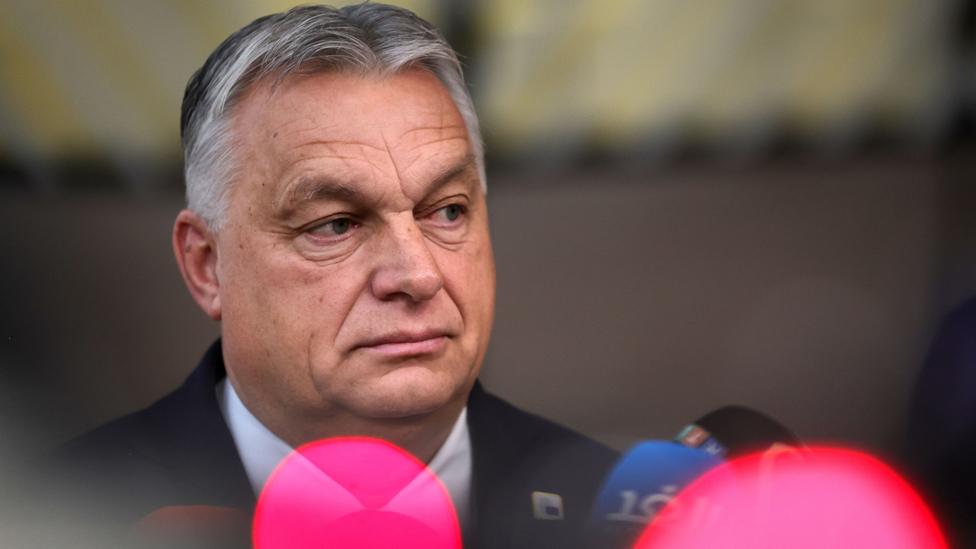Hungary: Orban promises new laws after child abuse scandal after protests
- Published
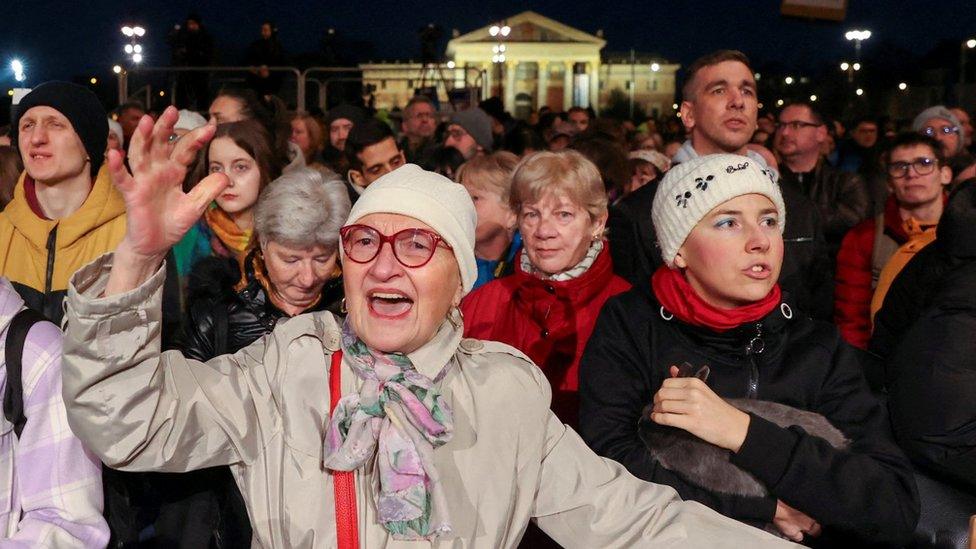
Large crowds streamed into Budapest's Heroes' Square for the demonstration entitled "there are monsters out there"
Hungary's Prime Minister Viktor Orban has promised a new package of laws in response to a child sexual abuse scandal that has shocked the nation.
Mass protests were held after it was revealed that a former official, convicted of covering up sexual crimes at a state-run children's home, had been granted clemency.
Mr Orban said there was no room for clemency in child abuse cases.
There have been several resignations over the controversial pardon.
President Katalin Novak, who granted the pardon, and two senior figures in Mr Orban's ruling Fidesz party stepped down last week.
The scandal has become the biggest threat to Mr Orban's conservative rule since he returned to power in 2010 and threatens to reduce support for his Fidesz party in local and European elections four months from now.
Even before Saturday's speech, Mr Orban proposed a 13th amendment to the Hungarian Constitution which would ban future heads of state from ever granting clemency to those caught up in sexual abuse cases against children.
One of his ministers, Gergely Gulyas, announced on Friday that the new law would include a review of staff appointments at state orphanages where 7,000 children live.
With this speech, Viktor Orban attempted to draw a line under a scandal that has thrown his government onto the defensive and reassure his supporters he is back in control.
Only pro-government media were allowed into the Castle Garden building where he delivered his speech, amidst tight security. The BBC, international news agencies and independent Hungarian media were told there was no space inside.
"Good people sometimes make bad decisions," Mr Orban told party officials, business people and close allies from public life.
He thanked Ms Novak and former Justice Minister Judit Varga for their dedication, but approved their decision to step down.
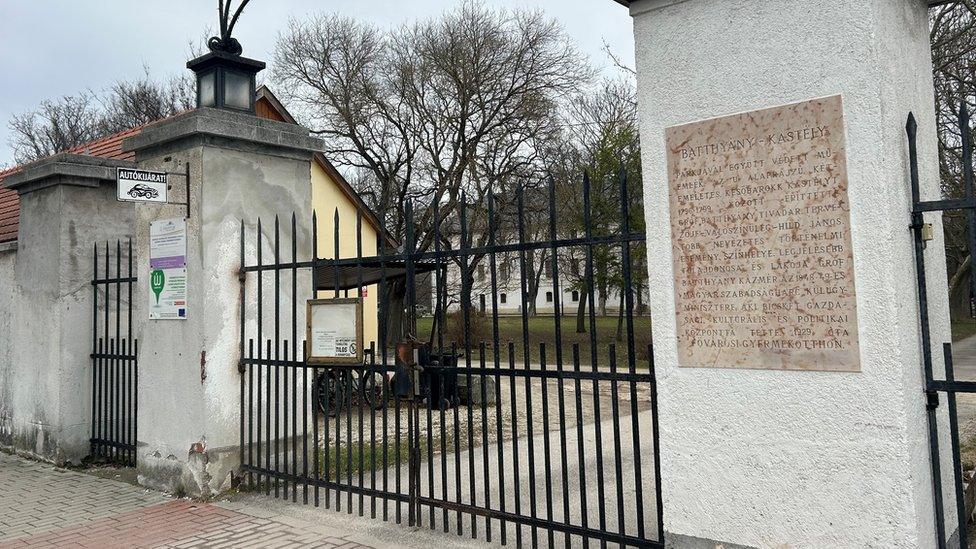
The state-run Bicske children's home at the centre of the scandal
Mr Orban also said Parliament should elect a new president urgently and he expected it to approve Sweden's Nato membership at the first spring session on 26 February. Hungary is the last of the defensive alliance's 31 members to ratify Sweden's accession.
After getting the awkward issue of the pardon decision out of the way, Mr Orban relaxed visibly, cracking jokes to his supporters, listing the achievements of his government and lambasting the European Union for what he once again referred to as its failed policy on Ukraine.
The vote on the new child protection package and accompanying amendment to the constitution will present a challenge to opposition parties, who have only 63 seats in the 199-seat parliament.
If they vote in favour, they will help Viktor Orban recover from the scandal. If against, they will be accused of siding with paedophiles.
"The clemency case is just the tip of the iceberg of Hungary's systemic problems," influencer Zsolt Osvath told a crowd of around 50,000 protesters in Budapest on Friday evening.
It was the highest turnout for any non-Fidesz event for many years - proof of widespread public concern over the government's social policies.
Whether the prime minister succeeds in putting the scandal behind him depends on several factors: whether the protests continue; whether the issue galvanises opposition supporters; and on any legal consequences from corruption allegations made against senior government figures since the scandal first broke.
If more revelations are forthcoming, the government is concerned it will lose votes in June.
A government source told the BBC he feared Fidesz could lose up to 8% - although that would still leave it with a comfortable majority, as one opinion poll put the party's support at more than 50% of Hungarian voters before the scandal broke.
Related topics
- Published14 February 2024
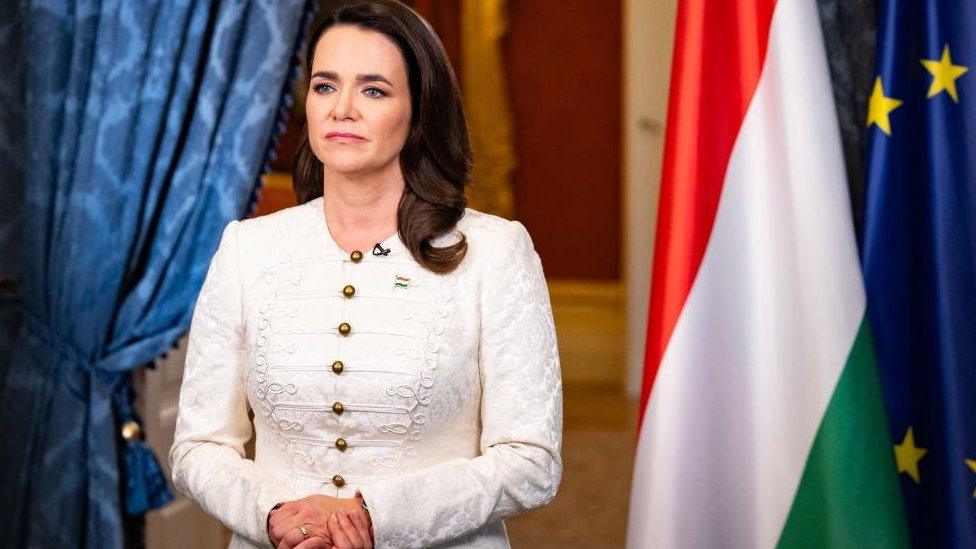
- Published10 February 2024
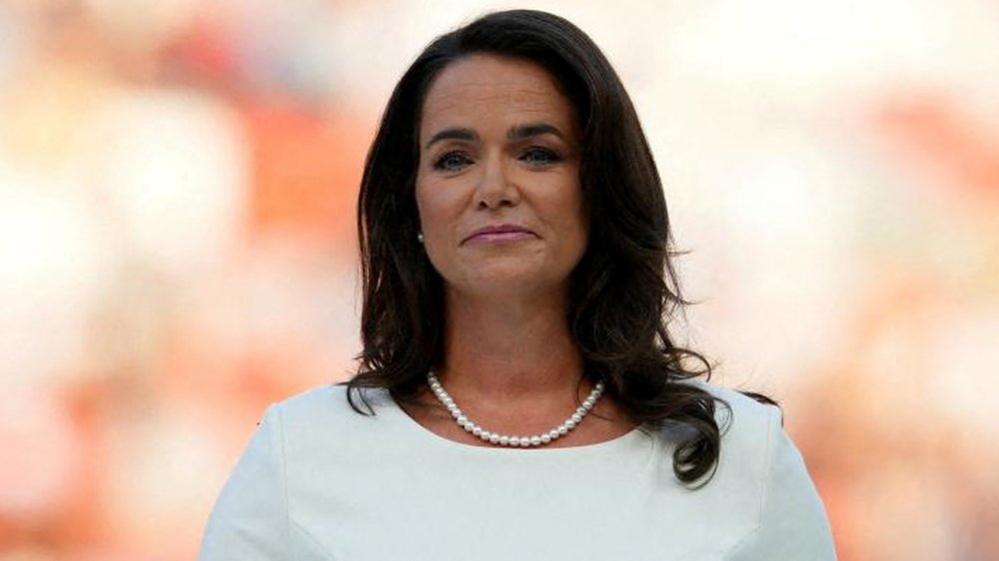
- Published13 February 2024
